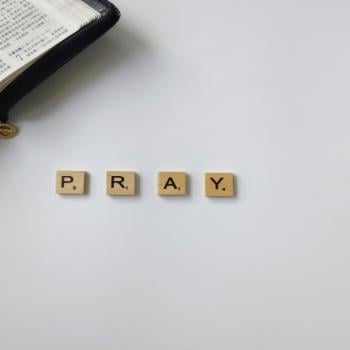That would seem to apply to politicians in general. But it seems that Christians have a disproportionate amount of sex scandals. Is there something about specifically Christian, often conservative evangelical politicians that makes them more inclined to these types of affairs?
It’s true that conservative evangelicals who have been in politics have really captured the headlines. I think part of it is the great strain these folks feel on their family lives. There’s constant scrutiny for how they treat their kids and how they relate to their spouses, and sometimes that can actually produce some weird family dynamics that create tension in their marriages. These families are strained when they get into the political limelight, and in the heat of the moment they begin to unravel.
Is this happening more often now? It seems in the last four years, we’ve had a real explosion of sex scandals, especially from Christian politicians. Has something changed in Washington culture?
Probably the biggest shift relates to the ways in which political leaders work and how they commute to Washington. Twenty years ago, those elected to Congress moved their families to Washington and became a part of this small community of other elected officials who also had recently moved. The wives played bridge together, the kids played soccer together, the couples went out to dinner. It created an intimate network of relationships.
In 1994, Newt Gingrich was concerned about his new Republican lawmakers losing contact with constituents. So, he installed the procedure that no roll call votes would be held on Friday or Monday. With that he encouraged the lawmakers to remain in their districts. They would fly to Washington late Monday night or Tuesday morning, take care of their committee activities and other voting procedures on the floor, and leave Washington Thursday night or Friday morning. This created an intense crucible for political leaders who worked night and day while in Washington and then returned to where their families lived in their home districts.
This served to build relationships with constituents. But it places a terrible strain on families that has, I think, contributed to the erosion of marriages. It’s also given rise to deep-seated political animosity. It’s much easier to demonize your political enemies if you don’t know them as people. So there have been some really bad consequences of this particular strategy that’s been in place now for about sixteen years. My hunch is that it’s also played a large role in the rising number of political figures who fall into sex problems and extramarital affairs.
What does this pattern say about the readiness of evangelicals to enter the halls of power?
Evangelicals have spent a lot more time thinking about how to gain power than how to deal with power. Like many Americans, evangelicals don’t like to think of themselves as having a great deal of status or fame or influence. Yet on a comparative perspective, American Christians are the most powerful people of faith who have ever walked the earth. For that reason, evangelicals in politics need to devote more time and energy to considering what sort of safeguards they can put in their lives, what guardrails will give them accountability -- people asking hard questions into their lives, and to whom they are willing to be genuinely accountable. Probably the biggest issue is that evangelicals have not thought strategically of how corrosive power can be, how corrupting for your personal life, and how vital it is to have a wellspring of accountable friendships and support systems to help navigate the minefields.
In a couple of the recent sex scandals, there seemed to be some support structures. Chip Pickering and John Ensign were part of the Fellowship, a network of Christian politicians meeting regularly for prayer and accountability. What broke down there, or is a structure like that inadequate?
As I told the New Yorker when they were writing a story about the Fellowship and the C Street House where a number of these members of Congress lived, accountability works to the extent that one is willing to make him- or herself accountable to the group. The Fellowship has been incredibly influential in the lives of more Washington political leaders than any other ministry, church, or religious organization. I studied it for a number of years, and the Fellowship is unrivalled in its scope and influence. The Fellowship can set up a structure of accountability; it can build small prayer groups and fellowship networks and those can be very important in people’s spiritual lives. But they only work to the extent a person is willing to be honest with their group and to live by the principles they espouse.
There may be a connection between the change in political culture and the polarization and demonization you mentioned. If you are always attacking and condemning the opposition, and you cannot let your guard down or open yourself up for constructive judgment, it becomes much more difficult to be open with your closest friends and family.




